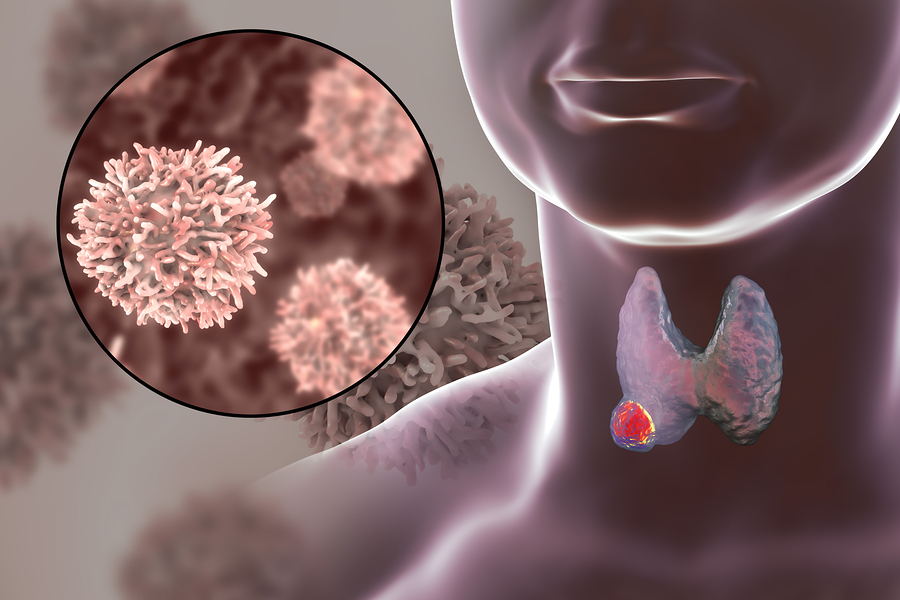A study from scientists at the University of Calgary has found that most people who are treated for thyroid cancer have tumors that would never have caused them any harm. Dawnelle Topstad and James Dickinson, from the university’s Cumming School of Medicine, looked at four decades worth of Canadian data on the disease and found that thyroid cancer incidence rates in Canada “increased by almost six times in women and five times in men between 1970 and 2012.”1
RELATED STORY:
What Topstad and Dickinson found was a big spike after the early 1990s after ultrasound technology came into wider use. But, at the same time, the pair found that rates of people dying from the disease were low with little variation between men and women (they chocked it up to an increase in detection with better technology).
No one wants to hear they have cancer but Dickinson says that roughly 75 percent of these thyroid cases are harmless. Yes, abnormal cells might be present but it doesn’t follow that the mass would even grow, let alone grow so fast as to become an issue.
“Treatment for thyroid cancer can include surgery and radioactive iodine followed by lifelong hormone replacement drugs. Operating on the thyroid gland could endanger vital blood vessels and nerves in the area if there are complications.
In the long term, it’s a delicate balance to replace the hormones that the gland produced, since the wrong dosage can have dangerous side effects. For instance, an overabundance can lead to high blood pressure.”2
RELATED STORY:
One big question is why rates are so much higher in women than men: 23.4 per 100,000 in 2012 for women compared to 7.2 per 100,000 the same year for men. However, the researchers believe that perhaps women are just more likely to go to the doctor if they think something is wrong. Makes me think of the billboard from a couple years ago…
 The takehome is that better imaging is leading to overdiagnosis. However, that doesn’t mean you should ignore symptoms you may have. Identifying and making a plan to deal with aggressive thyroid cancer is still important.
The takehome is that better imaging is leading to overdiagnosis. However, that doesn’t mean you should ignore symptoms you may have. Identifying and making a plan to deal with aggressive thyroid cancer is still important.
RELATED STORY:
- ‘Oops… it wasn’t cancer after all,’ admits the National Cancer Institute/JAMA
- What You Need to Know About Your Thyroid Health












